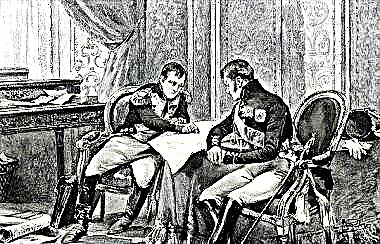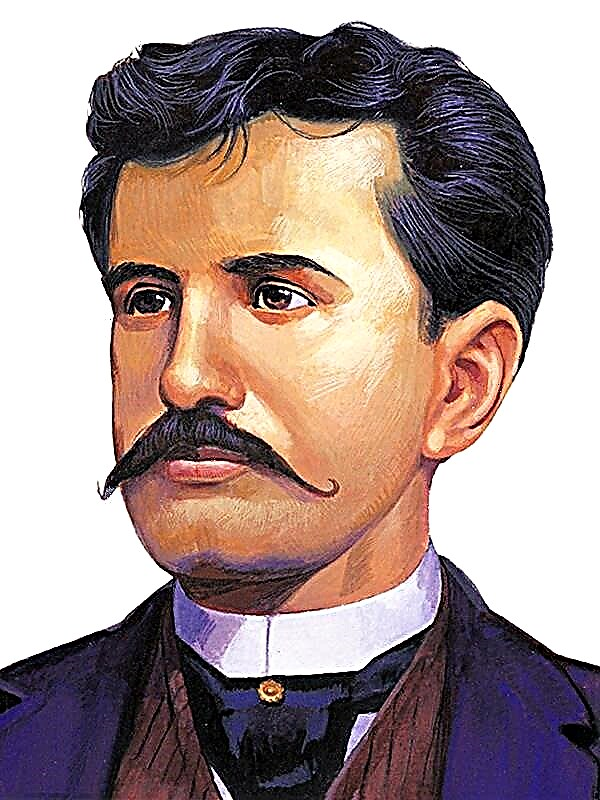The humorous stories of Chekhov forever remained the visiting card writer: this is how he appears to his readers a century after his death. We all begin to get acquainted with his work precisely from small stories, where the funny or sad drama of one person is narrated, by which we learn about the tragedy of all of Russia. Such is the story "Joke", which will be discussed in this article.
History of creation
For the first time this story was published in number 10 of the magazine "Firefly" from 12. 03. 1886. At that time it was a joke with a different plot. It was published under the pseudonym “Man Without a Spleen”. Then the end was happier, because the hero married Nadya.
In 1899, Chekhov planned to publish a collection of short stories and reworked the joke, changing the character of the protagonist, the style of the narrative and the ending, thereby making a serious story out of a funny joke.
Genre, direction
The work is written in the genre of the story. The story can be attributed to the direction of realism, flavored by the innovation of time and the writer himself. It was based on a description of Nadia’s experience and internal struggle with her own “I” and a description of what the main character experiences with the girl. But, inherent to Chekhov, the story ends with morality and finally shows us the dependence of a person’s emotional state on words.
The author’s innovation lies in the fact that we are faced with the dynamics of emotions, not events. We see the world from inside the characters. The story is poor in the physical actions of the heroes, but rich in their internal dialogues. The reader reveals the spiritual essence of young people, not their fictitious actions.
The main characters and their characteristics
The main character in front of us is a young man with no name and, quite an important heroine, Nadia. Characters of heroes are revealed in the course of events. The relationship between young people, the author leaves us a mystery, so that we can ask the question: "Is this a joke or love?"
- In the very first scene Nadya reveals itself to us as an indecisive, fearful girl, and her behavior is akin to cowardice and cowardice, - as the protagonist said. But, after a moment, yielding to the entreaties of the young man, with undisguised fear, she agrees to go down the sled from the mountain. Nadia, from the point of view of the author, is a gentle creature, feeding on emotions and feelings, which for her as “wine or morphine” are so important. Such a conclusion can be made on the basis of detailed descriptions of the girl’s facial expressions at the moment when she hears the cherished words: “I love you, Nadia!”, And no matter what time, she is ready to listen to them forever.
- Young hero at the very beginning it appears to us as a brave man and a merry fellow who comes down the mountain on a sled and sheer fun. He pushes Nadia, calling her a coward. But is he a daredevil who jokes about the girl’s feelings, and then can’t admit his evil, tormenting the poor interlocutor with hopes? Chekhov shows us that decisiveness does not always lie in the ability to ride from a steep peak on a sleigh, but in the strength of mind - to confess, admit one’s own mistake, so as not to regret later.
Topics
- The main theme that runs through the whole story becomes revealing the essence of courage and cowardice. Deceiving a girl and “playing” with her feelings is not a brave deed, but a victim of her indecision. The young man is a fake daredevil who swears by childishness. He has no real decisiveness, because he is still in his childhood, when it seems that someone else is responsible for our actions.
- Also, the author rises love theme. Playing with her is unacceptable, because many souls respond instantly and seriously to the treasured words of recognition. The heroine really fell in love and expected from a feeling of joy, but received only sadness and longing for unfulfilled happiness. The relevance of this topic, raised by Chekhov, will never disappear. At all times, only in different manifestations, there will be such "jokers" who will take for base humor that offends people's feelings.
- Chekhov also reflects on moral responsibility for what we said. Unfortunately, the danger of a careless word is realized by us too late, and we cannot accept the burden of the meaning that we mistakenly put into the spoken phrases.
Problems
An important problem of this story can be identified education. If a person has no idea that you can’t joke about the feelings of other people, it means that the parents did not put the proper understanding into him, or he neglected their advice.
Also, it is possible to single out the problem of too strong a person’s sensitivity, hypersensitivity to any situations and problems. On the example of Nadi, we can understand how it affects and can change the emotional state, any phrase or situation. Excessive sensitivity can lead to mental personality disorder. That is why it is important to be able to build a barrier between impressions and emotions, not allowing random phenomena to unsettle oneself. The problem of willpower is also affected by the author: Nadia cannot pull herself together, it is very easy to hurt. This feature may prevent her from living on.
The social issues of the story are represented by intricate relationships of the opposite sexes. Chekhov clearly described to us the lack of a common language among young people, which is still relevant at the present time. Communication and the ensuing conversations between people do not always mean finding a common language, as evidenced by the highlighted problem. You must be able to clearly express your true thoughts and feelings so that misunderstandings do not arise.
Meaning
The main idea of the story is that you can’t make fun of people's feelings, because words can be more painful than physical violence. One phrase can affect a person’s life and fate. The words, according to the author, are also weapons that are not always owned by balanced and sane fighters, wasting cartridges for nothing, for fun. But they do not know that their shots are not idle, that they injure casual passers-by, and their game becomes the eyeball of personal drama.
The idea of the author is implemented in the characters and their attitude to words. He shows us the completely opposite perception and influence of the same words on two different people. Nadia wants to hear "I love you" and be saturated with the phrase, like the sun. For her, a declaration of love remains a pleasant memory, which she carefully preserves. For a young man, these are absolutely impersonal, meaningless words that can be “thrown into the wind,” as he does, for the sake of a joke. Everyone can have their own perception, but this should not affect the significance of the words spoken. If a young man does not see the point in recognition, this does not mean that his interlocutors should adapt to his lexical nihilism.












